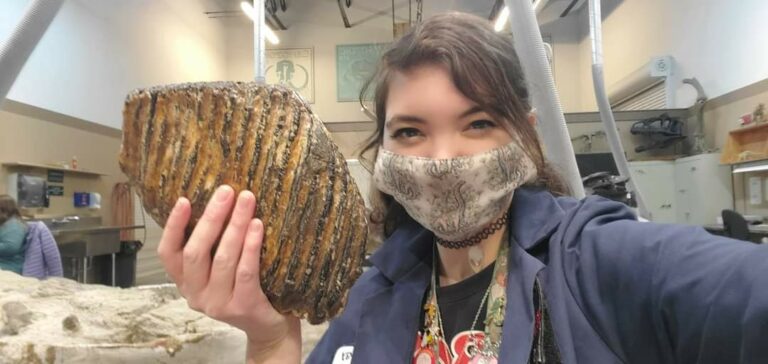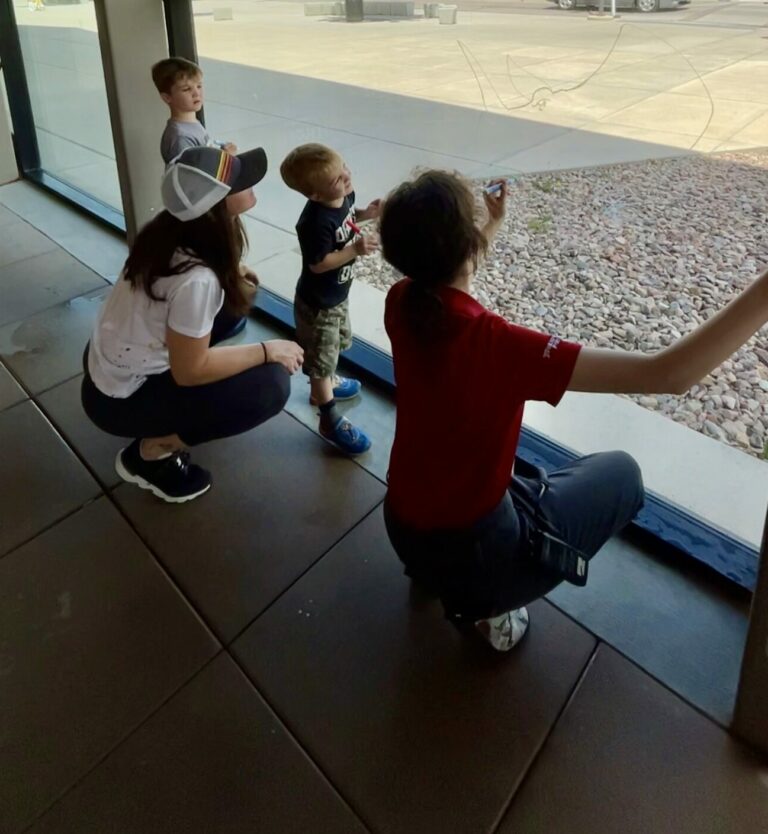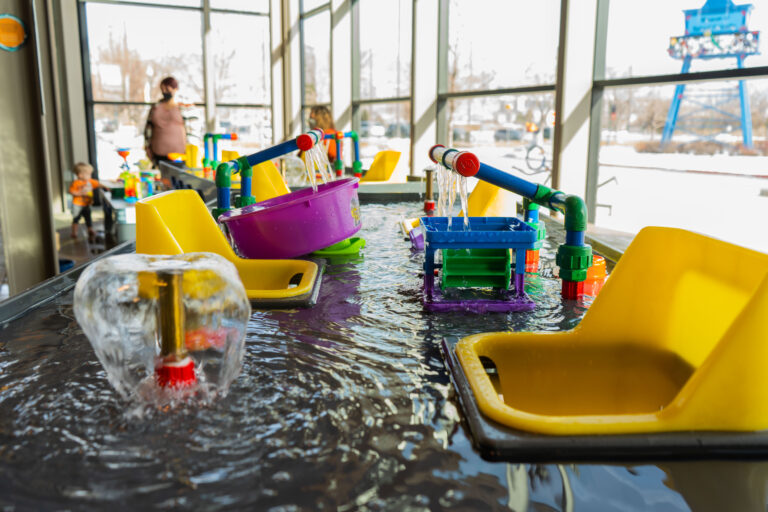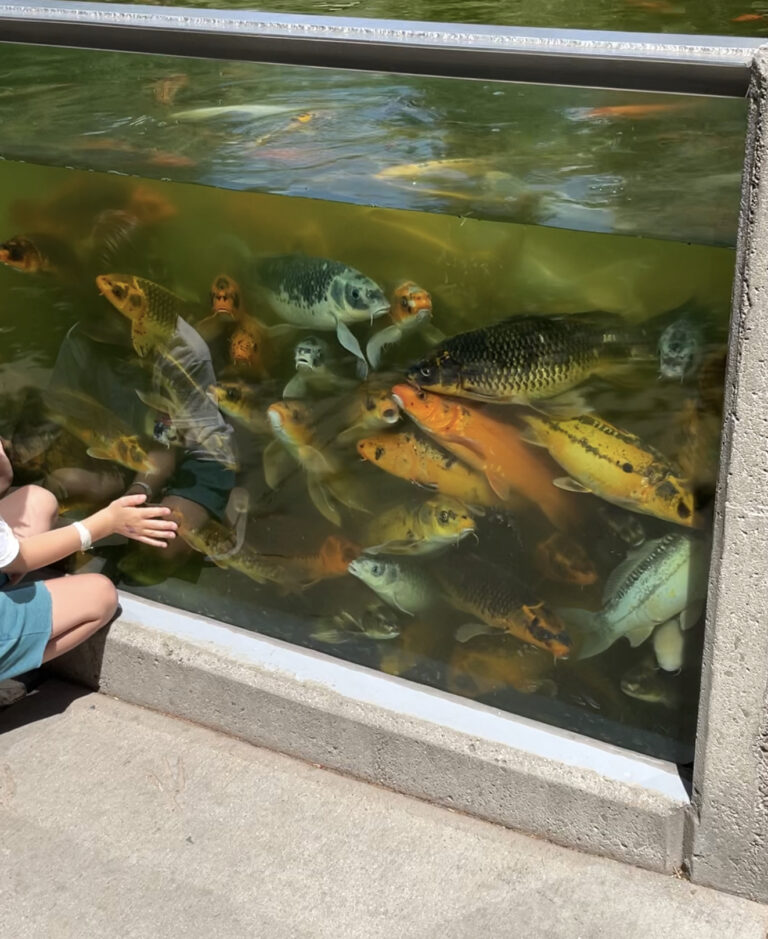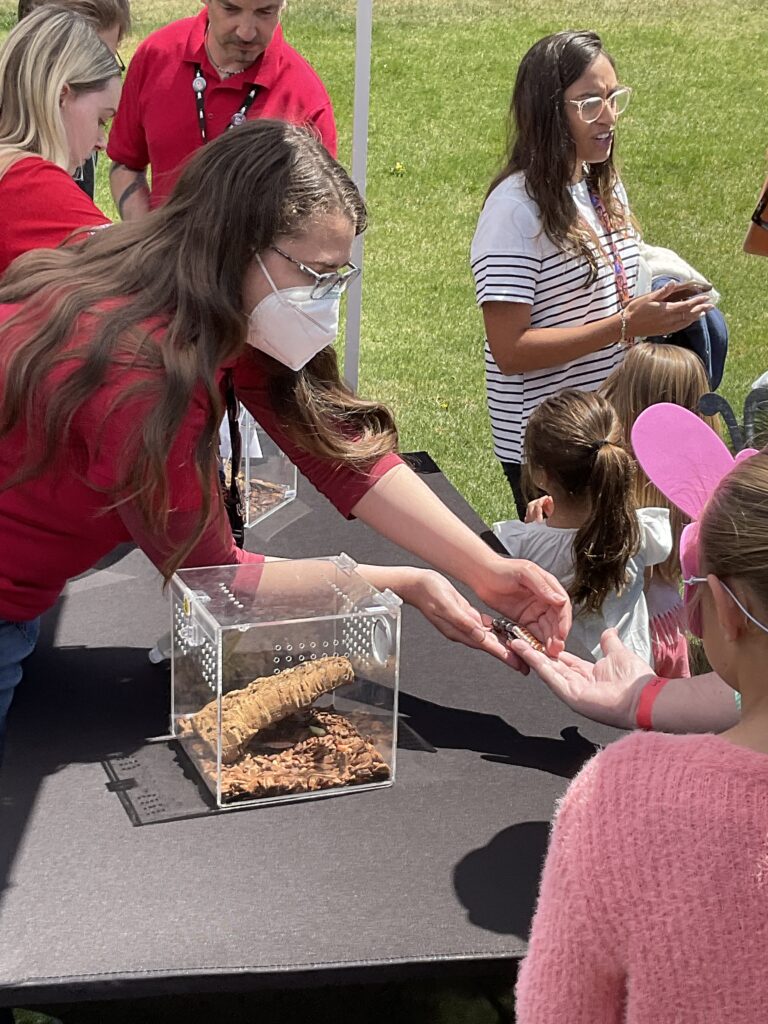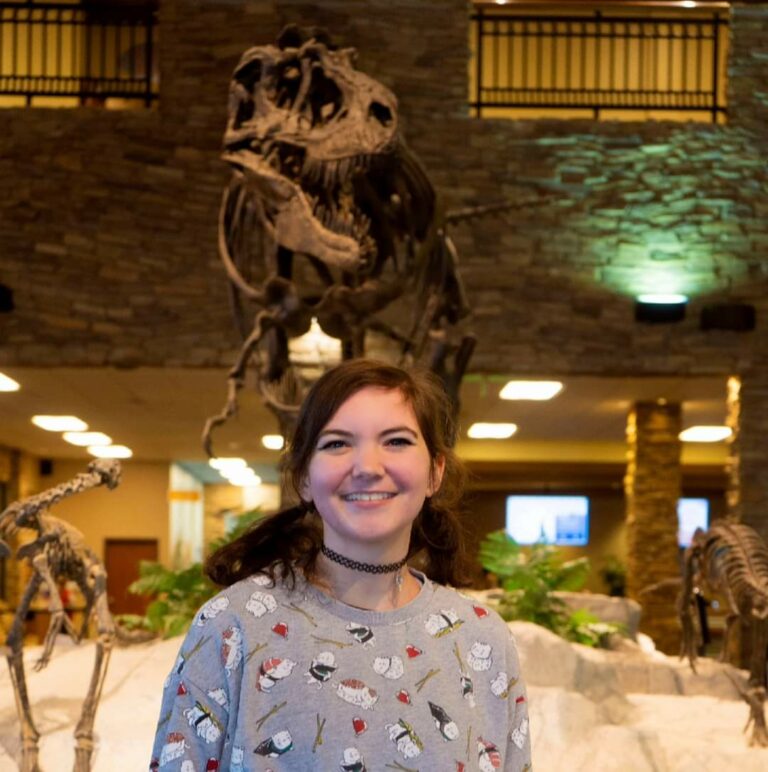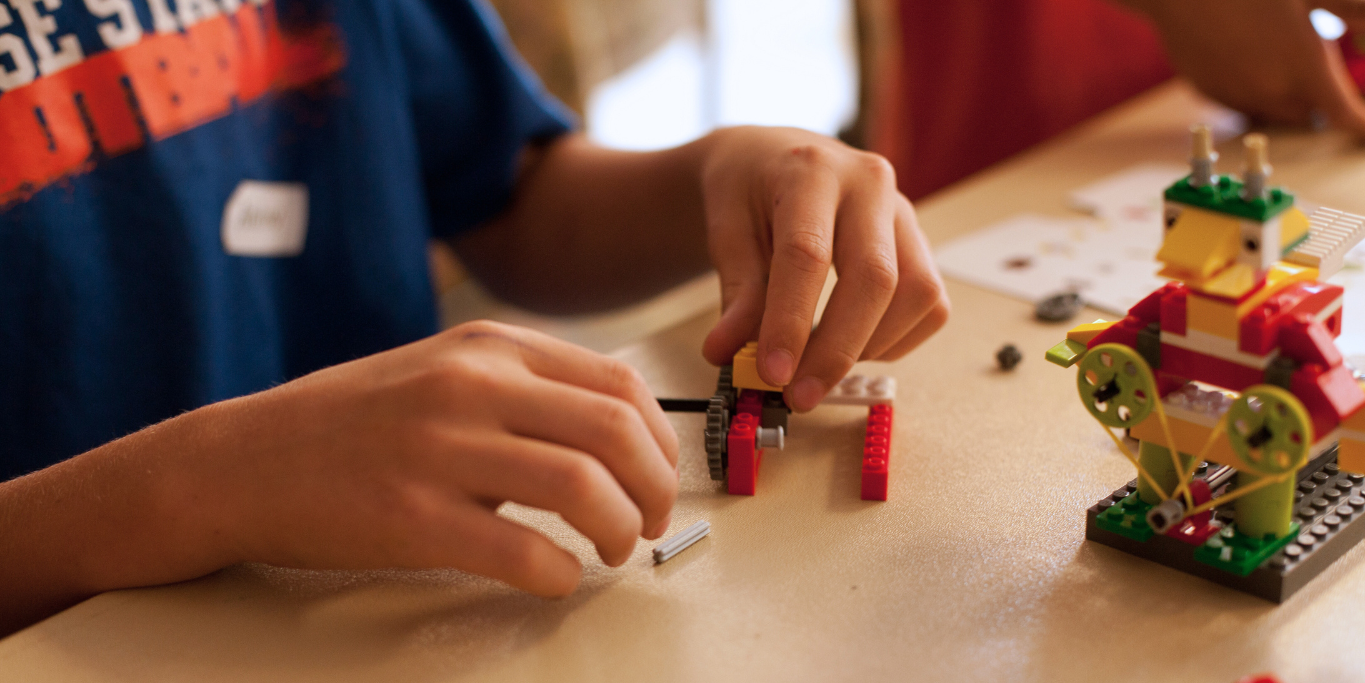She wore her cherry red Thanksgiving Point polo with black jeans and white Doc Martin-esque boots, customized with cartoon dinosaurs all over them. The lanyard that held her name badge had dozens of pins poked through and the face mask she wore displayed little prehistoric plants. She spoke to her team like she was talking with friends, her tone warm and inviting. She talked about trainings and upcoming summer camp procedures with an animated voice and big hand gestures like she was a game show announcer, and they had all won a big prize. But unlike a game show announcer, she exuded genuine excitement. “I love seeing the wonder in kids as they learn things they might not have realized about the natural world.”
I’ll tell you right now, she’s really good at her job.
Meet Hannah Pettijohn, one of Thanksgiving Point’s Explorers. If you have ever seen a red Thanksgiving Point shirt in the venues, you’ve seen an Explorer. Their job is to cultivate curiosity. Whether that means they are setting up additional games or activities in the Museum of Natural Curiosity, reading a book about dinosaurs in the Museum of Ancient Life, or helping a child get a butterfly to land on their finger in the Butterfly Biosphere, they serve as important front-line staff members to Thanksgiving Point venues.
After the conclusion of the beginning-of-the-shift meeting, she strapped on a radio and led me out the upstairs door. Step one, I learned, is assessing what you’re working with. We did a quick walk-through of each area in the exhibit to determine the approximate ages of the attendees. She explained that this helps them decide which activities to bring out, as naturally, some activities lend themselves better to some age groups than others. They have markers, paper, and pencils for art activities, instruments for music, and supplies for engineering projects, building, and weaving. They also have a collection of baby materials, because when they say all ages, they really mean it. Some of the other Explorers were already setting up – spirographs in Rainforest, kinetic sand in Kidopolis, window markers in Waterworks.
Because the water helps wash away the mess, window markers, chalk, and shaving cream are all fair game at Waterworks. “We encourage messy play; we can always clean it up.” But she did mention that the supplies used, while obviously being non-toxic, are also almost always gluten-free.
I watched Hannah hand a little boy a green marker and paint a dinosaur next to his more abstract art until a voice on the radio alerted them to a lost child. With no hesitation, she headed toward Kidopolis where the radio voice suggested they look. By the time we got there, the child was found, and everything was fine. “That’s how it goes, “she said, “we drop whatever we’re doing and start the search until we find them or hear on the radio that they’ve been found. They say it twice to make sure everyone knows.”
Hannah has worked for Thanksgiving Point since January 2020. She laughed, “good time to start, I know.” She became a Lead Explorer about six months later. Because Hannah is a lead, she spends more time than most making her way through all the energetic swarms of children running and playing, interacting with the attendees, and making sure everything is working right. Most shifts consist of three Explorers (four if you include the lead). The Explorers rotate through the venues but spend most of their time between the Museum of Natural Curiosity and the Butterfly Biosphere.
“Here,” she says in reference to the Curiosity Museum, “we focus on hands-on play, so many people learn that way. One thing I really enjoy about this job is you get to play too.”
I asked her if it was a lot to learn, having to know enough to answer people’s questions at each venue. “Yeah, but it’s good. That’s what we’re encouraging. You learn a lot. Like when I started, I knew nothing about bugs and now I’m obsessed, and I look for them everywhere. And yes, there’s training for stuff, but most of it you learn on the job, you learn on the go, which is great for me.”
We walked out into the Discovery Garden, where she was telling me about the geology you can see and learn about in the caves, trees, and the pond. “Did you know Koi fish hibernate?”
(No, I didn’t, but how cool is that?)
She smiled at a man a short distance in front of us. “He’s here all the time.” With memberships, we have people coming here frequently whom she has come to recognize and form connections with. Just the other day, she told me, a piece of pottery was gifted to her from a regular. Hannah praises the connections she has made with members of the staff who have introduced her to more professionals in the paleontology field, which she loves and is working toward a future in. “There are those opportunities if you look for them.”
We made her rounds again, walking back to one of the activity tables. She began talking to a little girl in a purple dress. This is the hardest part for a lot of Explorers, she told me: approaching the guests. It’s hard to know which guests want to be interacted with and which ones are just looking to stick to themselves. You also have to be adaptive. “You’re doing different things every day, running around with a field trip one day and sitting talking with someone about insects the next.” She said that unpredictability is fun, but also some days you just don’t want to deal with it.
Though the approaching and the need to be adaptive can be difficult at times, it is essential to Thanksgiving Point’s success. Everything Explorers do is – the big things like the field trips and the summer camps and the off-campus classes at public schools, and the small things like every interaction they have with a guest that makes them feel more comfortable and excited to learn.
“Learning should be safe,” she said. Kids shouldn’t feel nervous or under any pressure in our venues. They shouldn’t feel an expectation to get everything right the first time or the second or the third. “We encourage process vs. product”. Her favorite thing, she said, is teaching kids and adults alike about things that they might not think about or care as much about because they don’t think they’re as important. “They’re just as important.”
And what is curiosity really? Being content to just know what you know? Feeling satisfied that just because something seems to make sense at first glance must mean that it is right, or never changing?
Curiosity is learning, it is an endless possibility; especially when it comes to the natural world, the outcomes will always surprise you.
